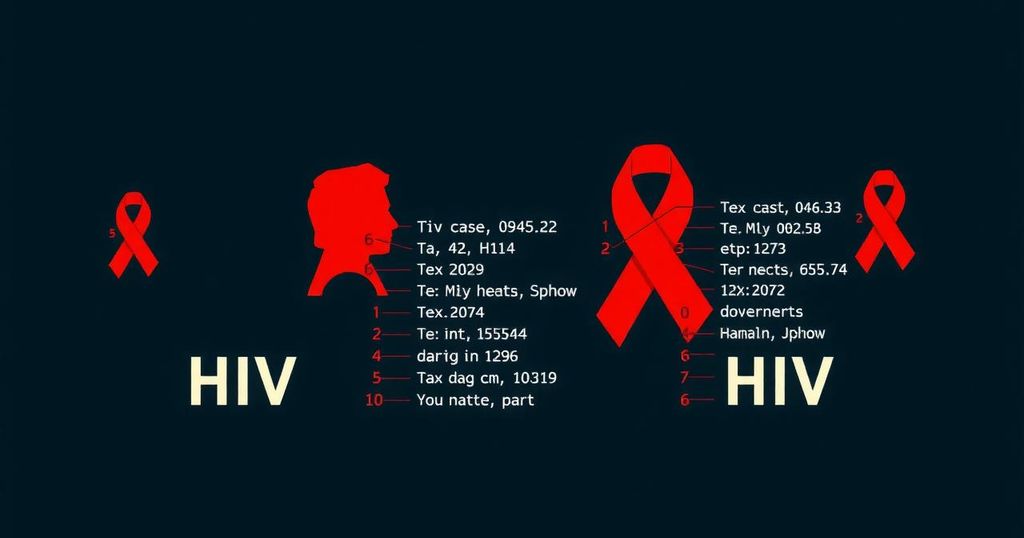President Luis Abinader and Minister of Public Health Víctor Atallah refute false claims of rising HIV cases in the Dominican Republic. They assert comprehensive health programs are in place, including free treatment, and emphasize ongoing monitoring. The National Council for HIV and AIDS clarifies that the supposed increase in La Altagracia province is exaggerated, with actual new cases accounting for only 45%.
In a recent press conference held in New York, President Luis Abinader and Minister of Public Health Víctor Atallah addressed and refuted misleading claims regarding an alleged increase in HIV and AIDS cases within the Dominican Republic. The officials asserted that the situation remains well managed, with adequate monitoring and treatment provided to patients. Minister Atallah elaborated that the comprehensive health program implemented by the government includes thorough diagnostics, consistent follow-ups, and free healthcare services for individuals living with HIV. He underscored that the Dominican Republic employs state-of-the-art diagnostic techniques designed to detect treatment resistance, thereby ensuring the efficacy of care provided. Furthermore, the National Council for HIV and AIDS (Conavihsida) dismissed speculations that the number of HIV cases had doubled in La Altagracia province. Melvin Brioso, the Technical Manager of Conavihsida, clarified that the new positive cases in that region actually represent just 45% of the total, countering the exaggerated claims circulating in the media. He also emphasized the significant advancements made owing to the establishment of over 80 comprehensive care centers nationwide, noting that with improvements in treatment, being diagnosed as HIV positive is no longer considered a death sentence.
The conversation surrounding HIV and AIDS remains a critical issue in the Dominican Republic as it does globally. Misinformation about HIV case trends can create panic and hinder public health initiatives. The Dominican government has implemented various programs aimed at combating the disease through prevention, treatment, and awareness. Recent claims of a spike in cases could provoke unnecessary fear among the population, prompting officials to systematically address such allegations with factual data and clarification of ongoing health strategies.
In conclusion, the assertions made by President Abinader and Minister Atallah regarding the management of HIV cases in the Dominican Republic serve to reassure the public about the robustness of health initiatives in place. Addressing misinformation is imperative to maintain public confidence in health services and to ensure that individuals living with HIV continue to receive the necessary support and treatment. The commitment to transparency and progress in HIV care remains a top priority for the government.
Original Source: dominicantoday.com







